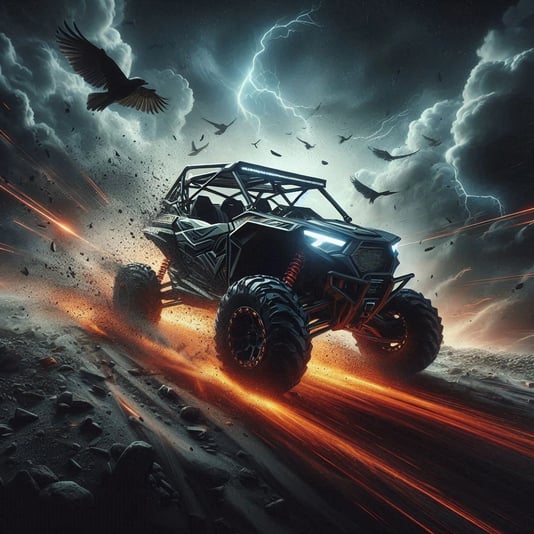2 min read
2 min read
Polaris Prevails in Product Liability Lawsuit: $10M UTV Rollover Case Dismissed
A
Anmol Tiwari
September 20, 2024

Table of Contents
Martin vs. Polaris Inc. et al
Case Background
On September 15, 2022, Plaintiff Zachary Tyler Martin filed a Product Liability lawsuit in the District Court of Tennessee Eastern (Case number: 3:22cv322). District Judge Curtis L. Collie assigned the case and referred it to Magistrate Judge Jill E. McCook.Cause
On September 17, 2021, Zachary Tyler Martin, a 27-year-old Tennessee resident, was riding as a passenger in his friend's 2017 Polaris RZR XP 1000 EPS utility terrain vehicle (UTV). The RZR XP 1000 EPS was a two-seater sport UTV designed for off-road use and reached speeds over 60 miles per hour. During operation, the vehicle flipped onto its passenger side. The forces from the rollover caused Martin to lose his grip on the "passenger hand hold," a T-shaped bar with hand grips located in front of the passenger seat. As a result, Martin's right arm was ejected from the vehicle's protective structure. Polaris Inc., Polaris Industries Inc., and Polaris Sales Inc. designed, manufactured, assembled, and sold the RZR XP 1000 EPS. They did so without sufficient occupant protection systems, such as cab nets or doors. These systems were necessary to prevent ejection during rollover accidents. The vehicle's owner's manual acknowledged the risk of rollover and ejection injuries, stating that the Rollover Protective Structure (ROPS) helps prevent occupant ejection when used with seat belts and cab nets or doors. However, Polaris sold the vehicle without these crucial safety features. Instead of providing proper containment systems, Polaris instructed users to "keep a firm grip on the steering wheel or hand holds and brace yoContinue Reading This Article
Subscribe to access this article and our entire library of legal content.
Unlimited access to all articles
Expert legal analysis and insights
Downloadable resources and templates
Tags
Misrepresentation
Product Liability Lawsuit
Economic Damages
Strict Liability
Ejection Prevention
Negligent
Non Economic Damages
Off-Road Vehicle Safety
Polaris Rzr
Utv Rollover Accident
About the Author
AT
Anmol Tiwari
Writer